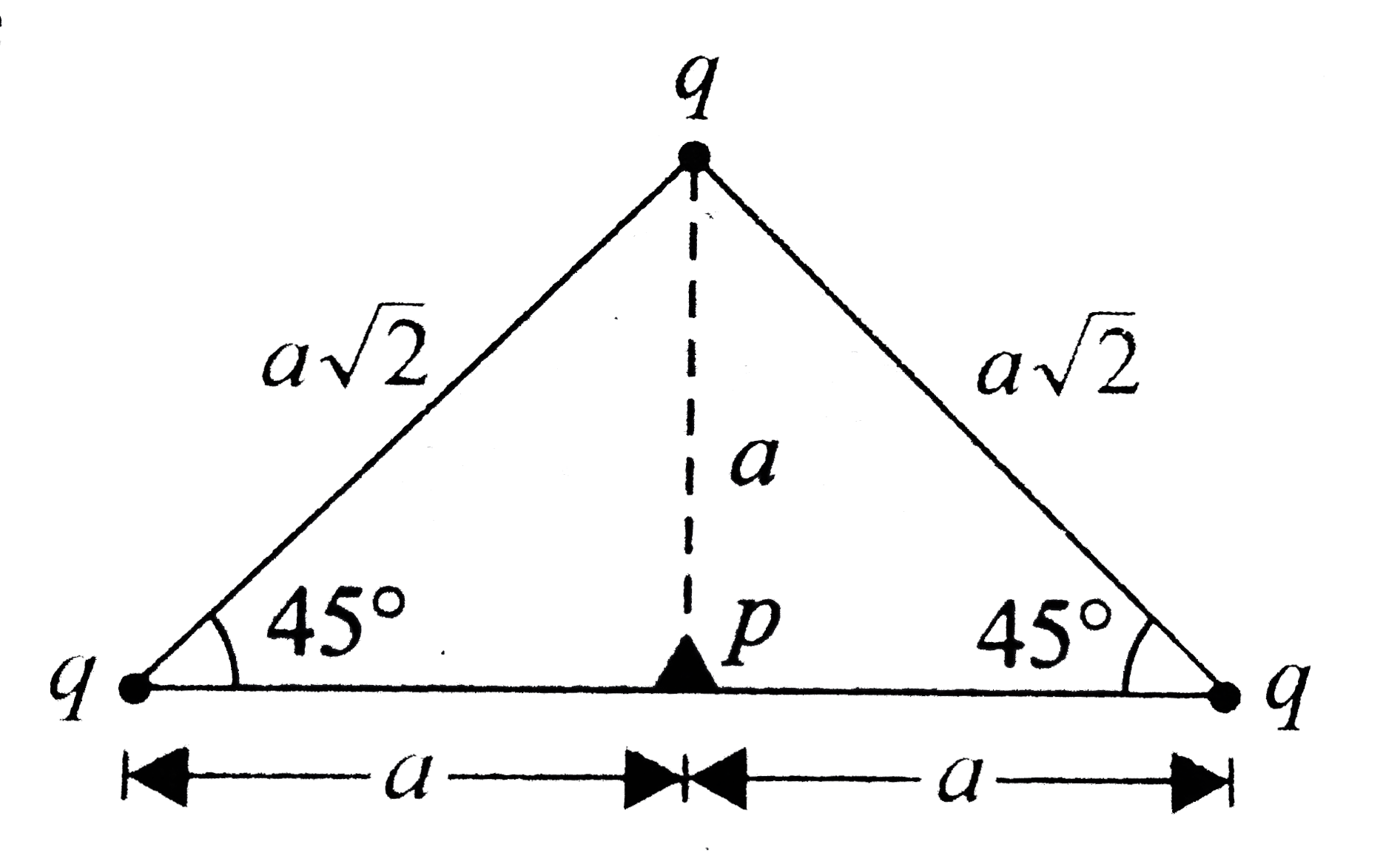Electric charge of any system is
Zero or neutral
Half integral multiple of the least amount of charge
Integral multiple of least amount of charge
Twice the least amount of charge
The correct Answer is:C
Step-by-Step Solution:
1. Understanding Electric Charge:
- Electric charge is a fundamental property of matter, present in particles such as protons and electrons. It is responsible for electromagnetic interactions.
2. Quantization of Charge:
- Electric charge is quantized, meaning it exists in discrete amounts rather than a continuous range. The smallest unit of charge is denoted as e.
3. Value of Elementary Charge:
- The value of the elementary charge e is approximately 1.6×10−19 coulombs. This is the charge of a single proton or the negative charge of a single electron.
4. Integral Multiples:
- The total electric charge Q of any system can be expressed as an integral multiple of the elementary charge. This can be mathematically represented as:
Q=n⋅e
where n is an integer (which can be positive or negative) and e is the elementary charge.
5. Conclusion:
- Therefore, the electric charge of any system is an integral multiple of the least amount of charge, which is the elementary charge e. Thus, the correct answer is that the electric charge of any system is integral.
Final Answer:
The electric charge of any system is an integral multiple of the least amount of charge.
---
- Electric charge is a fundamental property of matter, present in particles such as protons and electrons. It is responsible for electromagnetic interactions.
- Electric charge is quantized, meaning it exists in discrete amounts rather than a continuous range. The smallest unit of charge is denoted as e.
- The value of the elementary charge e is approximately 1.6×10−19 coulombs. This is the charge of a single proton or the negative charge of a single electron.
- The total electric charge Q of any system can be expressed as an integral multiple of the elementary charge. This can be mathematically represented as:
Q=n⋅e
where n is an integer (which can be positive or negative) and e is the elementary charge.
- Therefore, the electric charge of any system is an integral multiple of the least amount of charge, which is the elementary charge e. Thus, the correct answer is that the electric charge of any system is integral.
The electric charge of any system is an integral multiple of the least amount of charge.
Topper's Solved these Questions
- BOOK - PHYSICS WALLAHCHAPTER - ELECTRIC CHARGES AND FIELDS EXERCISE - LEVEL - 229videos
ELECTRIC CHARGES AND FIELDS
- BOOK - PHYSICS WALLAHCHAPTER - ELECTRIC CHARGES AND FIELDS EXERCISE - NEET PAST 5 YEARS QUESTIONS7videos
ELECTRIC CHARGES AND FIELDS
- BOOK - PHYSICS WALLAHCHAPTER - DUAL NATURE OF RADIATION AND MATTEREXERCISE - Neet past 5 years questions16videos
DUAL NATURE OF RADIATION AND MATTER
- BOOK - PHYSICS WALLAHCHAPTER - ELECTROMAGNETIC INDUCTION EXERCISE - NEET PAST 5 YEARS QUESTIONS10videos
ELECTROMAGNETIC INDUCTION
Similar Questions
Knowledge Check
- Question 1 - Select One
Electric field of a system is independent of:
AValue of test charge used to find out the fieldBSeparation of charges forming the fieldCdistance of pointDposition of charges forming the system - Question 2 - Select One
Assertion:A pair of closely spaced electron and proton behaves like an electrically neutral particle system and do not apply electric force on isolated proton or electron.
Reason: Two types of charges exist in nature, which are opposite to'each other in polarity. These two types of charges have a tendency to cancel the electrical effect of each other. Benjamin Franklin suggested the use of positive and negative signs to represent these two types of charges. We can calculate the net charge of any system by evaluating the algebraic sum of individual charges.AIf both assertion and reason are correct and reason is a correct explanation of the assertion .BIf both assertion and reason are correct but reason is not the correct explanation of assertionCIf assertion is correct but reason is incorrectDIf assertion is incorrect but reason is correct. - Question 3 - Select One
Electric field of a system of charges does not depend on
Aposition of charges forming the systemBdistance of point (at which field is being observed) from the charges forming systemCvalue of test charge used to find out the fieldDseparation of charges forming the syst
Explain what is meant by quantization of electric charge and conservation of electric charge.
View SolutionConservatios of charge is the propery by virtue of which total charge of an isolated system always remains constant or conserved. For example, when we rub two inslating bodies, A and B, such that n electrons from A transfer to B, then charge acquired by A=+≠ and charge acquired by B=−≠, where e is magnitude of charge on electron. The net charge on isolated system of bodies A and B=ne−≠−0, which was the charge before rubbing. Thus, it is not possible to create or destroy net charge carried by any isolated system. It also imples that charges can be created or destroyed in equal and unlike pairs only.
(i) What is the basic cause of conservation of charge ?
(ii) Name any other fundamental property of electric charge.
(iii) At a time, can you create two like charges of magnitude q=ne each ?
(iv) How is the property of conservation of charge reflected in day to day life ?View SolutionElectric field of a system of charges does not depend on
View SolutionAn electrical charge is a
View SolutionAn infinite number of electric charges each equal to 5 nano coulombs are placed along x-axis at x = 1 cm, x-2 cm, x -4 cm, x = 8 cm,.. and so on. In this setup, if the consecutive charges have opposite sign, then the electric field in newton/coulomb at x =0 is
View Solution


 .
.